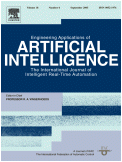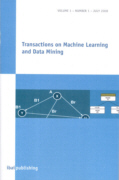 IBaI Institute |
Home |
Past events |
ICDM´2002 |
Abstracts
IBaI Institute |
Home |
Past events |
ICDM´2002 |
Abstracts
2nd Industrial Conference on Data Mining ICDM´2002
13. 06. - 15. 06. 2002 Leipzig/Germany
TeCoMed: Early Warning Of Threatening Influenza Waves
Dr. Reinhardt Schmidt and Prof. Lothar Gierl, Institut für Medizinische Informatik und Biometrie, Universität Rostock/Germany
The goal of our TeCoMed project (sponsored by German Science Foundation DFG) is to send early warnings against forthcoming waves or even epidemics of infectious diseases, especially of influenza, to interested practitioners, pharmacists etc. in the German federal state Mecklenburg-Western Pomerania.
Available data on infections are written confirmations of unfitness for work (including code of diagnosis), which have to be sent by affected employees to their employers and their health insurance schemes. Usually, each winter one influenza wave can be observed in Germany. In some years they are nearly unnoticeable, while in other years doctors and pharmacists even run out of vaccine. And a wave may occur in December, in March or sometime in between. Because of the irregular cyclic behaviour it is insufficient to determine average values based on former years and to give warnings as soon as such values are noticeably overstepped. So, we have developed a method that combines Temporal Abstraction with Case-based Reasoning.
The idea is to search for former, similar cases and to make use of them for the decision whether an early warning is appropriate or not. Since we believe that warnings can be appropriate four weeks in advance, we consider courses that consist of four weekly incidences. For Temporal Abstraction we have defined three trend assessments of the developments from last week to this week, from last but one week to this week and so forth.
These assessments and the four weekly data are used to determine similarities between a query course and all courses stored in the case base. Our intention is to ensure that a query course and an appropriate similar course are on the same level (similar weekly data) and that they have similar changes on time (similar assessments). After ranking all cases by applying a similarity measure, we reduce this list by checking for sufficient similarity. We use thresholds for the assessments and the weekly data. We have learnt these thresholds in retrospect.
On the resulting reduced list of former, similar courses we apply compositional adaptation. This means, we have marked the moments where in retrospect warnings would have been appropriate. So, the reduced list of similar courses can be split in two lists, namely concerning the question if a warning would have been appropriate or not. For both of these lists we compute the sum of similarities of their courses in respect to the query course. Subsequently, the decision about the appropriateness to give warnings depends on the question, which of these two sums is bigger.






